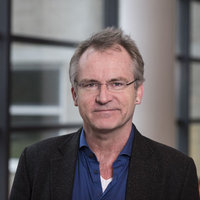Methodology of engineering and design

Pieter Vermaas' current research in philosophy of technology at Delft University of Technology focusses on design. It is aimed at analysing design methods for understanding what design is and for determining how to validate design methods. Design methods give procedures to address problems and challenges in engineering, product development and architecture. In these original application domains design methods are held to be effective and efficient on the basis of precedence, consisting of past successful designs obtained with the methods. Design methods are nowadays also seen as promising procedures to address problems and challenges in new domains such as business, policy and the social realm. The successes in their original domains and the extensions to new domain raise questions about how to validate design methods more generally and critically.
- Ishmaev, G., P.E. Vermaas, D. Hoeneveld, and P. van Gelder (2021) Safe by Design regulation for academic experimentation and value conflicts: an exploration of solution directions, International Journal of Environmental Research and Public Health 18, 1554
- Vermaas, P.E., and S. Eloy (2021) Shape Grammar Systems as a Technology for Flexible Design for Values in Cities: Giving Architectural Design to Inhabitants, in M. Nagenborg, T. Stone, M. González Woge and P.E. Vermaas (eds.) Technology and the City: Towards a Philosophy of Urban Technologies (Dordrecht: Springer), pp. 225-252.
- Stone, T., F. Santoni de Sio and P.E. Vermaas (2020) Driving in the Dark: Designing Autonomous Vehicles for Reducing Light Pollution, Science and Engineering Ethics 26, 387-403.
- Van den Hoven, J., P.E. Vermaas and I. van de Poel (eds.) (2015) Handbook of Ethics, Values and Technological Design (Dordrecht: Springer)
- Vermaas, P.E., P. Hekkert, N. Manders-Huits and N. Tromp (2015) Design Methods in Design for Values, in J. van den Hoven, P.E. Vermaas and I. van de Poel (eds.) Handbook of Ethics, Values and Technological Design (Dordrecht: Springer), pp. 179-201.
- Vermaas, P.E., Y-H. Tan, J. van den Hoven, B. Burgemeestre and J. Hulstijn (2010) Designing for Trust: A Case of Value-Sensitive Design, Knowledge, Technology and Policy 23, 491-505.
- Van den Hoven, J., and P.E. Vermaas (2007) Nano-Technology and Privacy: On Continuous Surveillance Outside the Panopticon, Journal of Medicine and Philosophy 32, 283-297.
Design methods

Pieter Vermaas analysed design methods in detail, initially for understanding the role of the concept of (engineering) function in engineering reasoning from client goals to physical descriptions of artefacts, and later to relate design reasoning with (natural) scientific reasoning.
- Vermaas, P.E., and S. Vial (eds.) (2018) Advancements in the Philosophy of Design (Dordrecht: Springer).
- Vermaas, P.E., and U. Pesch (2020) Revisiting Rittel and Webber’s Dilemmas: Designerly Thinking Against the Background of New Societal Distrust, She Ji 6, 530-545.
- Eloy, S., P.E. Vermaas and M. Andrade (2017) The Quality of Designs by Shape Grammar Systems and Architects: A Comparative Test on Refurbishing Lisbon’s Rabo-de-Bacalhau Apartments, Journal of Architectural and Planning Research 34, 271–294.
- Vermaas, P.E. (2016) A Logical Critique of the Expert Position in Design Research: Beyond Expert Justification of Design Methods and Towards Empirical Validation, Design Science 2, e7.
- Vermaas, P., K. Dorst and C. Thurgood (2015) Framing in Design: A Formal Analysis and Failure Modes, in Proceedings of the 20th International Conference on Engineering Design (ICED15), July 27-30, 2015, Milan, Italy, Vol. 3: Design Organisation and Management, pp. 133-142.
- Vermaas, P.E. (2014) Design Theories, Models and Their Testing: On the Scientific Status of Design Research, in A. Chakrabarti and L.T.M. Blessing (eds.) An Anthology of Theories and Models of Design: Philosophy, Approaches and Empirical Explorations (London: Springer), pp. 47-66.
- Vermaas, P.E. (2013) On Managing Innovative Design Projects Methodologically: The Case of Framing, in Proceedings of the 2nd Cambridge Academic Design Management Conference, September 4-5, 2013, Cambridge, UK, pp. 549-560.
- Vermaas, P.E., and K. Dorst (2007) On the Conceptual Framework of John Gero’s FBS-model and the Prescriptive Aims of Design Methodology, Design Studies 28, 133-157.
- Vermaas, P.E., P. Kroes, A. Light and S.A. Moore (eds.) (2008) Philosophy and Design: From Engineering to Architecture (Dordrecht: Springer)
General methods

Juan M. Durán has extensive work done on scientific and engineering methods. Of these, he was published a book on computer simulations, and several articles on explanatory AI, Big Data, and Computational Reliabilism.
Durán, J.M. (2020) "What is a Simulation Model?" Minds & Machines 30, 301–323
Durán, J.M., Formanek, N. (2018) "Grounds for Trust: Essential Epistemic Opacity and Computational Reliabilism" Minds & Machines 28, 645–666.
Schembera, B., Durán, J.M. (2020) "Dark Data as the New Challenge for Big Data Science and the Introduction of the Scientific Data Officer". Philos. Technol. 33, 93–115

Michael Klenk's work illuminates the relationship and boundaries between empirical approaches to morality (e.g. psychological experiments or anthropological field studies) and its normative dimension. How can we study what people actually think about morality, and how does that have implications for what we ought to do.
Klenk, M. Why Metaethics Needs Empirical Moral Psychology (together with Jeroen Hopster), Critica, 2020.
Klenk, M. „Charting Moral Psychology’s Significance for Bioethics: Routes to Bioethical Progress, its Limits, and Lessons from Moral Philosophy”, Diametros 2020.
Klenk, M. „The Influence of Situational Factors in Sacrificial Dilemmas on Utilitarian Moral Judgments”, Review of Philosophy and Psychology, 2021.
Klenk, M. „Moral Philosophy and the 'Ethical Turn' in Anthropology” ZEMO, 2020.
Klenk, M. „Evolution and Moral Disagreement” Journal of Ethics and Social Philosophy, 2018.

Martin Sand has proposed vision assessment and hermeneutic Technology Assessment to study the present of contemporary technological futures and better understand, why we are conceiving of a the future as an object of design. He has applied those methods to various futuristic case studies (anti-ageing technologies).
Sand, M. (2019) On “not having a future”. Futures, 109, pp. 98-106, DOI: 10.1016/j.futures.2019.01.002
Sand, M. (2018) How the future has a grip on us. Techné: Research in Philosophy and Technology 22(2), pp. 262-282, DOI: 10.5840/techne201862684
Sand, M.; Schneider, Chr. (2017) Visioneering socio-technical innovations - A missing piece of the puzzle. NanoEthics 11(1), pp. 19-29, DOI: 10.1007/s11569-017-0293-6
Sand, M.; Jongsma, K. (2017) The usual suspects - how techno-fixing dementia is flawed. Medicine, Health Care and Philosophy 20(1), pp. 119–130, DOI: 10.1007/s11019-016-9747-9
Engineering methods

Neelke Doorn has edited a Handbook on the philosophy of engineering, including a.o. various contributions on engineering methods. One of her own contributions in the Handbook is on the role of resilience in engineering.
Michelfelder, D.M. and N. Doorn, eds. Handbook of Philosophy of Engineering. 2021, Routledge: Oxon / New York.
Doorn, N., The role of resilience in engineering, in Handbook of Philosophy of Engineering, D.M. Michelfelder and N. Doorn, Editors. 2021, Routledge: Oxon / New York. p. 482-493.
Participatory approaches

Neelke Doorn is currently leading a project on the role of participation in RRI processes: PRO-Ethics.
Pigmans, K., V. Dignum, and N. Doorn (2021). ‘Measuring group proximity after deliberation: the search for mutual understanding at a citizens’ summit’. Journal of Public Policy. 41(2): pp. 228-250. DOI: 10.1017/S0143814X19000230.
Pigmans, K., H. Aldewereld, V. Dignum, and N. Doorn (2019). ‘Value deliberation to improve stakeholder participation in water governance’. Water Resources Management. 33 (12): 4067-4085. DOI: 10.1007/s11269-019-02316-6.

Udo Pesch has been involved in the development of several participatory approaches in both the realm of technology assessment and policy-making. In these approaches, the assessment of new technologies, risks and policy options is based on the creation of meaningful dialogues between decision-makers and members from the public at large.
Huitema, D., Van de Kerkhof, M., & Pesch, U. (2007). The nature of the beast: are citizens’ juries deliberative or pluralist? Policy Sciences, 40(4), 287-311. doi:10.1007/s11077-007-9046-7
Ligtvoet, A., Cuppen, E., DiRuggero, O., Hemmes, K., Pesch, U., Quist, J., & Mehos, D. (2016). New future perspectives through constructive conflict: Exploring the future of gas in the Netherlands. Futures, 78, 19-33.
Pesch, U., Huijts, N. M. A., Bombaerts, G., Doorn, N., & Hunka, A. (2020). Creating ‘Local Publics’: Responsibility and Involvement in Decision-Making on Technologies with Local Impacts. Science and Engineering Ethics. doi:10.1007/s11948-020-00199-0
Pesch, U. (2019). Elusive publics in energy projects: The politics of localness and energy democracy. Energy Research & Social Science, 56, 101225. doi:https://doi.org/10.1016/j.erss.2019.101225
Roeser, S., & Pesch, U. (2016). An Emotional Deliberation Approach to Risk. Science, Technology & Human Values, 41(2), 274-297. doi:10.1177/0162243915596231
Deliberative approaches

Udo Pesch has been invovled in the development of deliberative approaches related to the assessment of new technologies. To have a public debate on new technologies that aligns with the conditions of deliberative democracy it is necessary to establish a level-playing field of beliefs and expectations between experts and members of the publics.
Pesch, U., Huijts, N. M. A., Bombaerts, G., Doorn, N., & Hunka, A. (2020). Creating ‘Local Publics’: Responsibility and Involvement in Decision-Making on Technologies with Local Impacts. Science and Engineering Ethics. doi:10.1007/s11948-020-00199-0
Roeser, S., & Pesch, U. (2016). An Emotional Deliberation Approach to Risk. Science, Technology & Human Values, 41(2), 274-297. doi:10.1177/0162243915596231
Pesch, U. (2015). Engineers and Active Responsibility. Science and Engineering Ethics, 21(4), 925-939. doi:10.1007/s11948-014-9571-7
Pesch, U. (2021). Imaginaries of innovation: Turning technology development into a public issue. Science and Public Policy. doi:10.1093/scipol/scab017
Pesch, U. (2019). Elusive publics in energy projects: The politics of localness and energy democracy. Energy Research & Social Science, 56, 101225. doi:https://doi.org/10.1016/j.erss.2019.101225
Pigmans, K., H. Aldewereld, V. Dignum, and N. Doorn (2019). ‘Value deliberation to improve stakeholder participation in water governance’. Water Resources Management. 33 (12): 4067-4085. DOI: 10.1007/s11269-019-02316-6.
Emotional deliberation approach to risk

Together with Sabine Roeser, Udo Pesch has developed a deliberative method that is able to acknowledge the emotions of members of society in their assessment of technological risks.
Sabine Roeser and Udo Pesch (2016) ‘An Emotional Deliberation Approach to Risk’, Science, Technology & Human Values 41: 274-297
Pesch, U., Huijts, N. M. A., Bombaerts, G., Doorn, N., & Hunka, A. (2020). Creating ‘Local Publics’: Responsibility and Involvement in Decision-Making on Technologies with Local Impacts. Science and Engineering Ethics. doi:10.1007/s11948-020-00199-0
